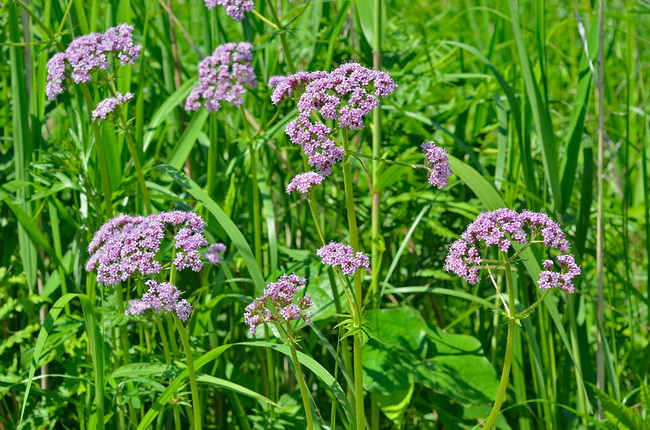- Make It Yourself Lavender Heart-Shaped Bath Bombs!
- 20 Things You Never Knew About “Down There”
- 12 Best Foods For Those Suffering From Arthritis Pain
- 12 Personal Hygiene Mistakes Almost Everyone Makes (Mom Never Told You About #4!)
- 15 Medicinal Plants And Herbs From The Cherokee People
- 12 Mind-Blowing Benefits Of Drinking Coconut Water During Pregnancy
- 12 Outstanding Winter Foods That Won’t Fatten You Up Like A Christmas Turkey
You Don’t Have to Suffer from Fibromyalgia!

Photo credit: bigstock.com
If you or someone you love suffers from fibromyalgia, you are not alone. Fibromyalgia is not only widespread musculoskeletal pain; it often comes with fatigue, joint stiffness, insomnia, depression, and feelings of anxiety. Read more what you shoud know about fibromyalgia.
Although scientists are not sure of the exact origin of this disorder of the central nervous system, some clinical solutions have involved the use of pharmaceutical drugs. However, these have proven to be only somewhat effective or only effective for a limited period of time. These solutions also come with some serious side effects. In fact, one survey conducted in 2011 found that more than 90 percent of people who suffer from rheumatic conditions, including fibromyalgia, find relief from herbal treatments.
Because there is no accepted “cure” or treatment for this health problem, most remedies simply rely on relief from symptoms. Although managing the symptoms is not easy, many persons find relief in a variety of herbs. Keep in mind that what works for one person does not necessarily work for someone else; so if one herb does not give you relief, try another.
Please consult with your physician before you begin any herbal program, especially if you are pregnant, nursing, are taking prescription drugs or if you are under a doctor’s care for an ongoing medical condition. Although most herbs are considered to be safe, there can be serious drug interactions or other problems can arise from the use of some herbs.
Keep reading for a list of 10 of the best herbs that can help relieve the symptoms of fibromyalgia.
1. St. John‘s Wort
Although there is no known study that says that this herb has successfully treated fibromyalgia, St. John’s Wort has been shown in several studies to be more effective than a placebo when it comes to treating the depression that generally accompanies those with fibromyalgia. These studies show that St. John’s Wort can be every bit as effective as antidepressants, such as Prozac, when it comes to mild depression. St. John’s Wort can interfere and cause side effects when combined with other prescription medications, so you should always consult your doctor before consuming this herb.
2. Red Clover
Red clover improves overall immune system health and gives it a boost of energy. Red clover is believed to be one of the best herbs you can consume for fibromyalgia. It has plenty of B vitamins and vitamin C, which has been found to be lacking in many persons who suffer from fibromyalgia. Red clover, especially when combined in a tea with burdock root and dandelion, can help cleanse the blood and provide relief from several symptoms such as intestinal problems, restless sleep, foggy thinking, and joint stiffness.
Continue to Page 2

Photo credit: bigstock.com
3. Chamomile
Anxiety attacks and poor sleep are often associated with this health issue and the calming effects of chamomile can help reduce feelings of anxiety, encourage deep sleep, and even improve the immune system. Chamomile flowers contain both flavonoids and terpenoids, which are the active ingredients that provide its therapeutic properties. Chamomile is one of the mildest herbs on the planet and can even be consumed by small children. Chamomile is a very calming, relaxing herb that can help stop muscle spasms, nervousness, and rheumatic pain. This herb is most often consumed as a tea.
4. Valerian
Valerian is also a known herbal relaxant, much like chamomile. Scientists in Germany have studied whether bathing in water mixed with valerian oil could have any effect on the tender points, general pain, and insomnia many fibromyalgia patients complain of. The result so this study showed that this bath water mixed with valerian oil did improve the subject’s pain and encouraged improved sleep.
5. Griffonia Simplicifolia
This is a powerful herb that is little known in the US, but can be used to help stop some of the worst symptoms of fibromyalgia. This herb contains very high levels of 5-HTP, which is considered to be a potent pain killer. This herb works by alleviating many of the pain issues that fibromyalgia patients endure. Griffonia simplicifolia also contains natural compounds that relax and calm the muscles.
6. Kava Kava
Often referred to simply as kava, this herb can stop feelings of nervousness and anxiety. Kava is very potent and can be used to relive nervous tension and stop the muscle spasms that often come with fibromyalgia.
Continue to Page 3

Photo credit: bigstock.com
7. Ginseng
One of the oldest herbs on the planet, it has also been used for treating the symptoms of fibromyalgia more than any other herb. Ginseng is a powerful herb that has anti-viral and antibacterial compounds. It helps to stimulate the body’s immune system to fight off bacterial infections and can help stimulate the proper functioning of the body’s organs. Ginseng can gradually eliminate the discomfort of fibromyalgia, and some people state that after prolonged daily use they find relief from almost all symptoms.
8. Passionflower
Passionflower has long been used to treat nervous tension and feelings of anxiety. This potent herb can work for fibromyalgia sufferers because it will fight fatigue, sleep problems, anxiety, tension, and feelings of nervousness. Passionflower is generally consumed as a tea.
9. Cayenne
This versatile herb has been used to relieve the pain of migraines and joint stiffness for quite some time. Studies suggest that this herb can also work for the muscle pain and body aches that also come with fibromyalgia.
SEE ALSO: Top 5 Natural Cures for Arthritis
10. Gingko Biloba
This is another ancient herb that has been used successfully for pain for hundreds of years. British researchers conducted an uncontrolled study in 2002 which showed that coenzyme 10, combined with gingko biloba, was an effective treatment for those suffering from fibromyalgia. Subjects were given 200mg of gingko extract every day for a period of 84 days. Almost all subjects stated that they had significant improvements in their quality of life and had fewer episodes of pain. Gingko can have drug interactions, so if you are consuming any prescription drugs, or even over the counter medications, be sure to check with your physician before consuming gingko biloba.
References:





























